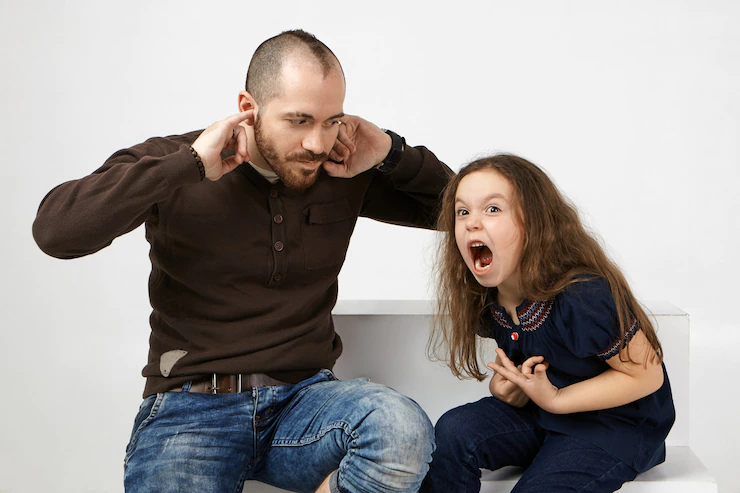Temper tantrums and irritability are a normal part of growing up. It is the infant’s way of letting their parents know that something is wrong. There can be various reasons for a child’s fussy or irritable behavior such as loss of sleep, hunger, frustration, fight with a sibling etc. Stress at home, irritable mood or anger of parents or caregivers can also cause irritability in children.
Most common childhood illnesses can cause the child to become irritable. They include colic, constipation, teething or toothache, ear infection, headache, stomach infection or pain, flu or cold, bladder infection, etc.
But if your child’s irritability and temper tantrums are unusual, frequent, extreme, out of proportion, difficult to control and happen constantly – at an age where most children have outgrown them, then he/she may be suffering from a condition known as Disruptive Mood Dysregulation Disorder or DMDD. It is a childhood condition characterized by excessive, irritability, anger and frequent, extreme temper outbursts. It goes beyond ‘moodiness’ and significantly impact many areas of a child’s life. The main symptoms include irritability, emotional dysregulation, and behavioral outbursts.
Symptoms
Symptoms of DMDD include:
Severe, recurrent temper tantrums: They can take form of verbal outbursts such yelling, screaming or behavioural outbursts such as throwing and breaking things, biting, pushing.
Tantrums that are inappropriate for a child’s age level: In DMDD, the tantrums aren’t what you would expect for a child’s developmental level in terms of how often they occur and how bad the episodes are. For example, it is unusual for an 11-year-old to start yelling and crying or to destroy things when they are angry.
Outbursts occur approximately three or more times a week: It is not a strict rule, tantrums may occur more than three times in a week and fewer in the next. On average, three or more tantrums a week are considered for diagnosis.
Tantrums that are out of proportion to the situation: It is not unusual for a child to get angry when they do not get what they want but a child with DMDD will react with violent outbursts verbally and/or physically.
Irritable and angry moods between tantrums: In the absence of outbursts, parents or caregivers will notice that a child with DMDD is consistently angry and extremely irritable. Parents may regularly feel like they have to be “walking on eggshells” in order to avoid an episode.
Tantrums occur in multiple settings: This implies that the temper tantrums do not just occur in a particular setting such as at school or at a home or with one parent or caregiver. For diagnosis, the symptoms must occur in at least two settings such as at school, at home or with friends.
In addition to the above symptoms, diagnosis requires that:
- The mood disturbance has been present for most time of the year.
- The child is between 6 to 17 years of age.
- Symptoms are present before the age of 10 years.
It is important to rule out other causes such as autism, developmental disability or substance abuse etc.
DMDD closely resembles other psychiatric conditions such ADHD (Attention Deficit Hypersensitivity Disorder), ODD (Oppositional Defiant Disorder) and Bipolar Disorder.
Treatment
As parents, you must consult a physician if your child’s moods are consistently unusual and out of proportion. It is important to recognize the cause whether it be due to loss of sleep, hunger or due to some physical pain that the child is experiencing or due to emotional causes or any underlying medical condition like autism or development disorder.
Mood dysregulations can have a significant impact on the child’s growth, can damage their relationships with their family and peers and may become internalized as anxiety and depression in the later years.
Homoeopathic medicines have wide application in paediatrics and are safe and effective. They not only improve health of children but also help them to lead a healthy life ahead.
Since homeopathic medicines work on dynamic plane, they act well on mental level. A homeopath studies and understands the child’s emotions and the challenges they face. Medicines are prescribed largely on the basis of emotions and behavioural patterns. Children under our homoepathic treatment have been able to face their issues better than they could before, and significant improvement has been seen in their behavior and mood.
At Honey Homoeo Clinic, we have skilled doctors with rich experience in dealing with childhood troubles.
For treatment, contact us at Honey Homoeo Clinic.



